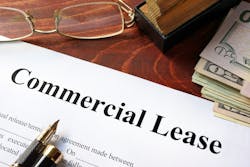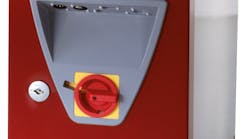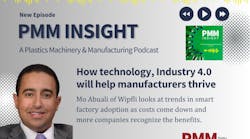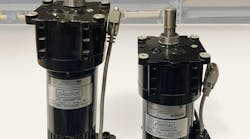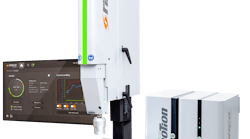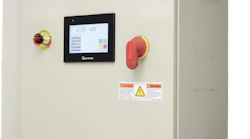By Matt Wrobleski
Partner, SLB Capital Advisors
Sale leasebacks can be an effective capital allocation tool for plastics manufacturers to consider. A sale leaseback is effectively a simultaneous sale of an underlying property and a leaseback to the operating business. The business becomes the tenant and continues its responsibility for expenses, as if it still owned the property.
The simultaneous sale and leaseback of a facility to an institutional investor can unlock equity and provide the ability to repurpose that capital for other uses more pertinent to the business. The transaction is surprisingly agile, and while real estate fundamentals play a role, the key drivers of value are the credit of the tenant and the lease structure itself.
One reason that sale leasebacks are particularly apt for plastics manufacturers is because many of them own their facilities. Still, some operators get hung up on the perceived loss of control over their property. “It’s mission-critical,” they say, “And we must be able to control it.”
What they may not appreciate is that a facility’s critical importance will enable the extraction of significant value in a sale leaseback transaction. Further, with a long-term lease, plus renewals (15 to 20 years with multiple five- or 10-year renewal options), the seller will have effective control over the asset upwards of 35 to 40 years.
Sale leasebacks in the plastics industry
SLB Capital Advisors has been party to sale leaseback transactions across the plastics supply chain — from resin manufacturers to blow molding to extrusion to manufacturers of molding equipment. Investors and operators alike recognize the value in plastics manufacturing, but fewer are aware of how to access and capitalize on this value through sale leaseback transactions.
From an owner’s perspective, a sale leaseback is an opportunity to reallocate capital tied up in real estate to other areas of the business. Common uses of proceeds include paying down debt and improving the company’s cost of capital; funding internal growth initiatives, new equipment and production lines; and helping fund acquisitions, among others.
Given the premium valuations industrial real estate enjoys in today’s market, as compared to the valuations for plastics manufacturers (generally valued on a multiple of earnings before interest, taxes and depreciation and amortization or “EBITDA”), a sale leaseback offers owner/operators a unique arbitrage opportunity. That is, owners can cash out of real estate at extremely high prices and redeploy that capital into the business itself. Depending on the underlying performance of the business, a sale leaseback can be executed on the underlying real estate at a 13-times to 18-times multiple, compared to a mid-to-high single-digit multiple for a typical industrial business.
A highly nuanced transaction
There are many levers one can pull in structuring the optimal sale leaseback. The lease structure itself, length of the lease, percentage and frequency of rent increases, and where to set base rent are just a few that come into play. Additionally, it is important to negotiate change-of-control provisions that do not hinder a future contemplated business exit.
Not just in top-tier markets
Many who follow today’s real estate environment know it is an excellent market for sellers. When considering fundamental real estate attributes, conventional wisdom suggests pricing is often better in larger metro areas, such as New York, Chicago and Los Angeles. However, the credit element of a sale leaseback transaction provides the ability to transact at very attractive pricing even in the tertiary or remote markets where plastics manufacturers are often located.
Real estate fundamentals certainly play a role; however, a sale leaseback is in some very qualified ways detached from some of the conventions that might drive a “plain vanilla” property sale. Remember, the sale leaseback investor is looking for a safe, steady stream of income. As a result, the health of the underlying business and the health of its credit are going to factor into valuation and can be more important than the location of the property.
Because of this unique dynamic, we have executed sale leasebacks not only in highly sought-after industrial markets such as Boston and San Diego, but also in tertiary and rural areas of the Midwest and Southeast.
Sale leaseback market remains strong
2021 was a near-record year for sale leasebacks in both deal and transaction volume. Some 790 sale leasebacks were closed during the period, totaling $24.3 billion. Notable industrial deals in 2021 include Broadstone’s acquisition of Ryerson properties for $107 million, U.S. Realty’s acquisition of Omnimax facilities for $100 million, and New Mountain capital’s acquisition of multiple Rollins buildings for $45 million.
Various drivers led to the resurgent activity during 2021, including a low-interest-rate environment, new pools of professional capital moving into the sale leaseback space, as well as an active mergers and acquisitions landscape.
Approximately 48 percent of deals in 2021 were characterized as “industrial,” which includes manufacturing, distribution and warehousing. As a percentage of total deals, retail and office have abated from historical norms, given the COVID impacts on each of those real estate sectors.
Today’s market is an opportune time for business owners and operators to consider a sale leaseback transaction. Industrial real estate valuations were incredibly strong heading into the pandemic, and have somehow found another, higher plateau. We have seen the “multiples” applied to real property reach historic levels. With many businesses owning the underlying facilities in which they operate, they may just be unknowingly sitting on a gold mine.
